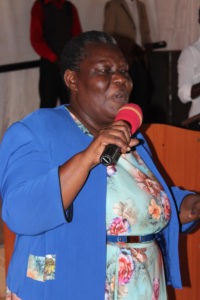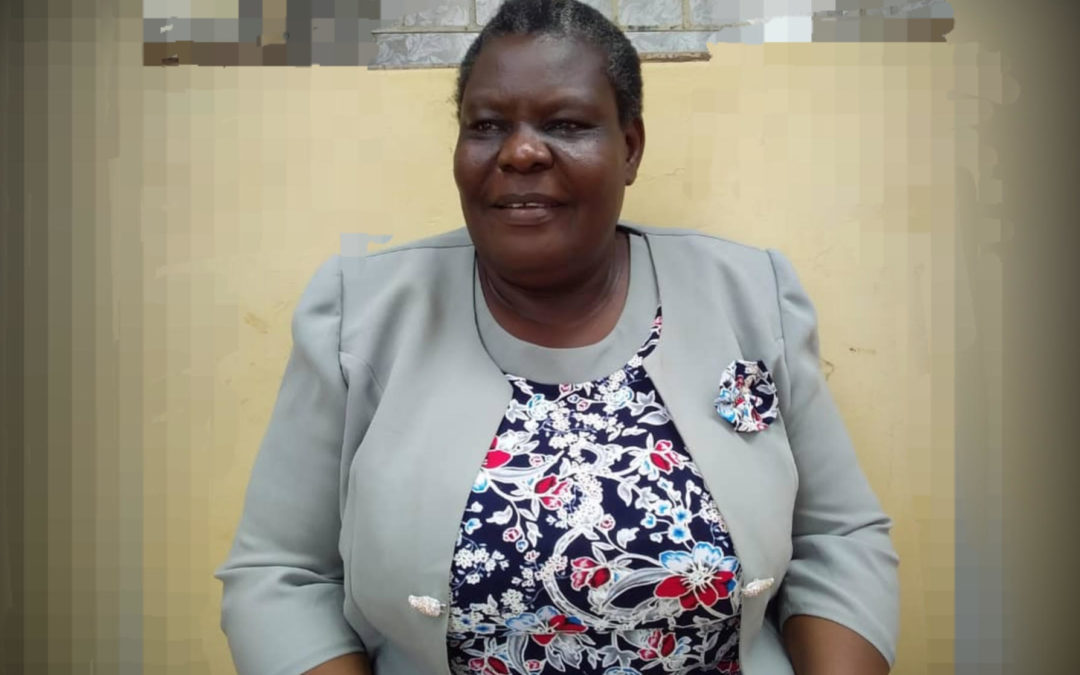“WNSP staff along with it many women’s groups began to brainstorm and figure out a way forward even in these trying times. WNSP was particularly keen on understanding whether women socio-economic empowerment provides a basis for community resilience during and in the aftermath of Covid-19...”
– Mary
I have been working with WNSP since its inception in 2010. WNSP’s work speaks directly to the core of my aspiration and passion. As a woman, I grew up in both rural and urban settings of Uganda. I experienced austere challenges which I still see women going through today. Upon my retirement as an Agriculturalist in 2006, I decided to embark on a journey to work with local women in Uganda to try and overcome some of these challenges.
WNSP is a women-led organization whose core focus is to work with local communities towards improvement of their well-being. The intention is to address inequalities and other challenges faced especially by women and girls. Socio-economic empowerment provides the foundation to eliminate gender inequality and ensure prosperous and socio-politically empowered women in society. At WNSP, we take pride in the quote,

“If a woman is educated, enlightened, and empowered socio-economically and morally, she can draw the family forward socially, economically and morally. If a family progresses this way, a district progresses, a state progresses and finally the country progresses.”
Village Saving and Loan Associations
To effectively engage with the women, WNSP’s leverages the Village Saving and Loan Associations (VSLA) process. A VSLA is a group of people who meet regularly to save together and take small loans from those savings. The activities of the group run in cycles of one year, after which the accumulated savings and the loan profits are distributed back to the members. The purpose of a VSLA is to provide simple savings and loan facilities in a community that does not have easy access to formal financial services. A VSLA is a transparent, democratic and structured version of informal Savings Groups. The main differences are that the VSLA methodology emphasizes accountable governance, standardized procedures and simple accounting that even the least literate, least influential member of the group can understand and trust. Groups usually hold annual elections. Groups members can borrow from the savings at a very low interest rate of less than 10% with no collateral required as long as they are a group member. Once formed, WNSP trains the VSLA members on the concept of saving and investing for a better future.
Additional training to support economic empowerment:
- Training on improved agricultural practices for better productivity.
- Promotion of alternative income generating activities.
- Training on group dynamics, drafting and implementation of group constitutions, book keeping, group leadership and accountability, good governance, and registration of the groups with their respective local governments to become legal entities.
To date, WNSP has worked with a total of 31 women groups reaching 925 direct beneficiaries, of these; 807 being females and 118 males.
Covid-19 Impact on VSLA
In mid-March 2020 the Government of Uganda started to put in place restrictions to try and curb the spread of the Covid-19 global pandemic. Covid-19 has created unprecedented times as the Government has put in place a curfew and also restricted travels within the country. This has reduced economic opportunities and women’s entrepreneurship. It has had direct implications on the women and girls, effected them both economically and emotionally. And increase in domestic violence cases have been reported during the Covid-19 lockdown. Women haven’t been able to sell their products and consequently their income has decreased. In some cases women have had to shut down their small businesses completely. The pandemic outbreak and restrictions on the movement of goods and people has hampered women’s trading activities, as well as their ability to cultivate their land and engage in other agricultural activities. Consequently, women are worried about how to pay back loans from VSLAs, which has reduced the associations’ capital and affected women’s and girls’ longer-term economic prospects.
WNSP staff along with it many women’s groups began to brainstorm and figure out a way forward even in these trying times. WNSP was particularly keen on understanding whether women socio-economic empowerment provides a basis for community resilience during and in the aftermath of Covid-19. To prove this, WNSP and the women had to develop very clear principles and strategies to go about the challenge. Here are some of the strategies and guidelines the groups developed to be able to cope with Covid-19 while remaining as productive as possible.
Principles and guidelines for the sustained engagement of the VSLA groups during and in the aftermath of Covid-19:
- Space out contributions: Rather than large group meetings for purposes of saving and/or to request for a loan, the groups decided that members come individually to meet the leaders. The leaders to ensure precise documentation of all transactions.
- Fewer meetings: Groups decided to reduce their meeting frequency, from every week to every two weeks, while using alternate ways like SMS to connect and conduct the saving activities. Continue to emphasize enforcement of VSLA core principles and best practices especially group transparency and confidentiality to ensure group cash/savings security and social solidarity.
- Strongly encourage high-risk members to stay home: the people in the greatest risk categories including elderly members, people who are sick or have pre-existing health conditions, pregnant women, etc. were urged to stay home and contribute through peers. Group members also agreed not to bring children to meetings.
- Reinforce handwashing: all the group members will wear protective gear (face masks), maintain social distancing, and wash hands with soap at the beginning and end of meetings. Leaders to prioritize handwashing supplies and liquid soap for people who count money and hold the keys to the cashbox.
- Limit touching of surfaces: Fewer number of people allowed to touch money, the cashbox, and record books.
- Spread out: Members adhere to a sitting distance of at least 2-4 meters apart by select the largest possible venue for group meetings. If anyone is ill, they are advised not to attend any meetings and where necessary report to a nearby health facility as soon as possible.
- Reinforce gender-based violence mitigation and prevention measures: emphasizing meaningful communication between spouses and within households. Members reminded when and how to report gender-based violence incidents, how to access case management, and sexual and reproductive health services.
With the above principles and guidelines, the groups have continued to conduct business and have remained resilient in spite of the Covid-19 pandemic.
I am convinced that women’s socio-economic empowerment is the basis of community resilience in such circumstances. It also ensures food security within the community. Regardless of the current circumstances, the principles and guidelines have provided an avenue for the women groups to remain resilient, continue to carry on their businesses, and as well reach out to other women who are facing domestic violence in their communities.


Recent Comments